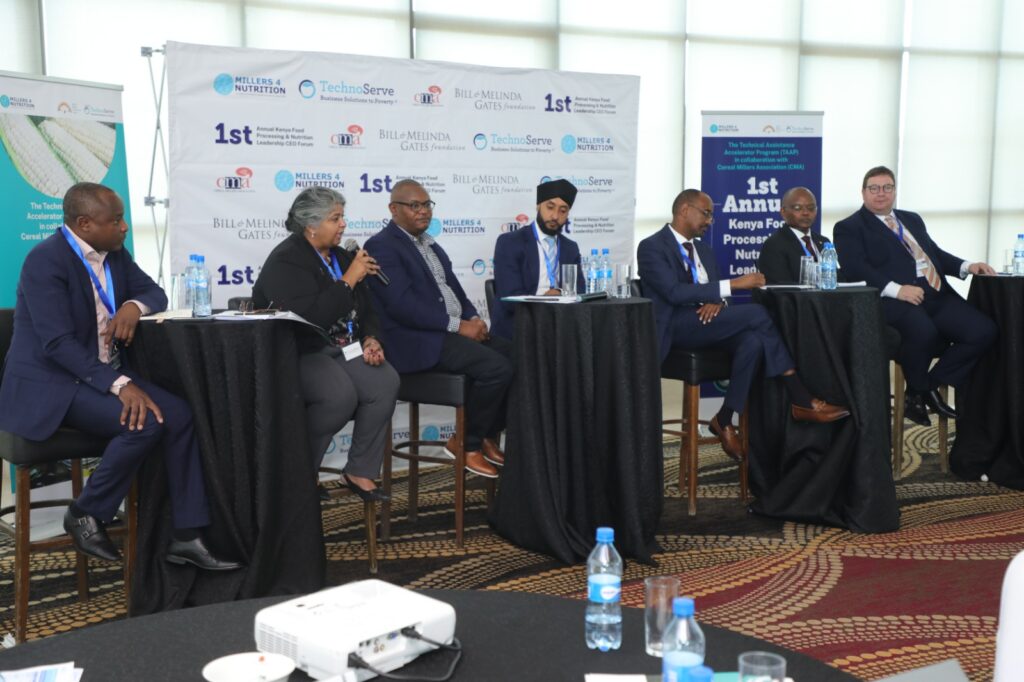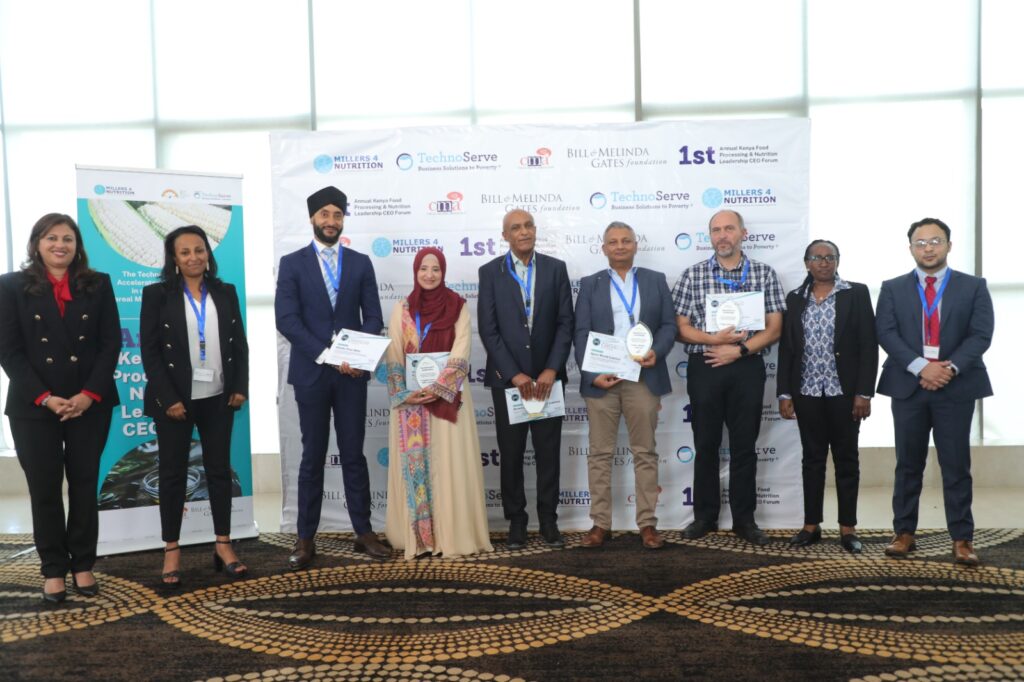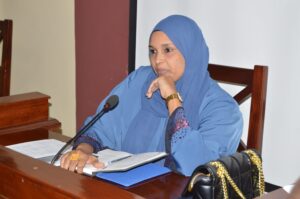CMA Partners with TechnoServe to Introduce a Fortification Index in the Fight against Multi-nutrition

The Cereal Millers Association (CMA) and TechnoServe, an international non-profit organization, have collaborated to introduce the Kenya Millers Fortification Index (KMFI) during the inaugural Kenya Food Processing and Nutrition Leadership Forum. The forum brought together stakeholders from the private sector, government, and civil society to address malnutrition, emphasize the role of millers in promoting nutrition, and tackle common challenges.
Despite progress in reducing stunting rates from 26% in 2014 to 18% in 2022, according to the Kenya Demographic Health Survey (KDHS), there remains a significant number of children under the age of 5 experiencing stunted growth and high rates of anemia. In response, the KMFI aims to encourage leading flour millers to provide greater access to nutritious and fortified food products through a self-regulatory system and award scheme. This initiative will prioritize nutrition and quality, while also providing valuable data for policymaking and driving impactful nutrition interventions in collaboration with the private sector.
The KMFI scoring is based on self-evaluation, expert insights, and product quality testing against national standards for fortification and aflatoxin levels. Participating food processors will benefit from improved brand positioning, enhanced compliance ratings, stronger relationships with regulators, and recognition for advancements in quality management.

The CMA, representing a substantial portion of maize and wheat milling capacity in Kenya, has been at the forefront of providing safe, affordable, and high-quality cereal flour to the population. However, negative publicity surrounding aflatoxin mitigation and food fortification issues has resulted in business losses, decreased consumer confidence, and reputational damage for some CMA member brands. The association remains committed to self-regulation and aims to rebuild trust and confidence through initiatives like the KMFI.
Paloma Fernandes, CEO of CMA, stressed the importance of voluntarily producing safe and nutritious food without the need for mandates. She called for collaboration among regulators, consumers, and food processors to scale up fortification efforts and prioritize nutrition.
The World Health Organization recognizes Large Scale Food Fortification (LSFF) as an effective strategy to combat malnutrition. In Kenya, the Kenya National Food Fortification Alliance was established in 2005 to spearhead fortification initiatives, with the involvement of government bodies, research institutions, UN agencies, and industry representatives. Mandatory fortification standards for maize, wheat, and oil were implemented in 2012.
The launch of the KMFI aligns with TechnoServe’s Technical Assistance Accelerator Program (TAAP), supported by the Bill and Melinda Gates Foundation. The program collaborates with leading food processors across eight countries in Africa and Asia to promote fortification practices and improve nutrition on a large scale. By engaging food processors as key allies and emphasizing business perspectives, the initiative aims to enhance industry compliance and meet national fortification standards.
Kris Ansin, Country Director of TechnoServe Kenya, highlighted the benefits of the KMFI, including increased transparency, brand trust, and improved visibility for businesses, particularly during periods of drought and food insecurity.
The KMFI represents a significant stride in addressing malnutrition and fortifying food products in Kenya, with the ultimate goal of enhancing the health and well-being of the population.





